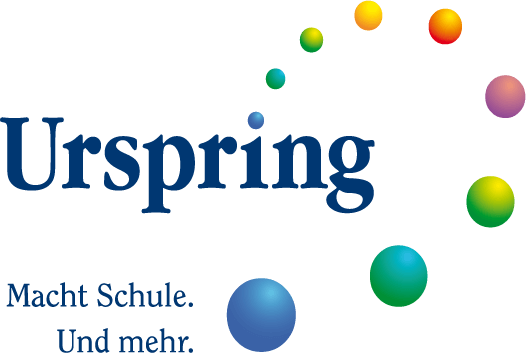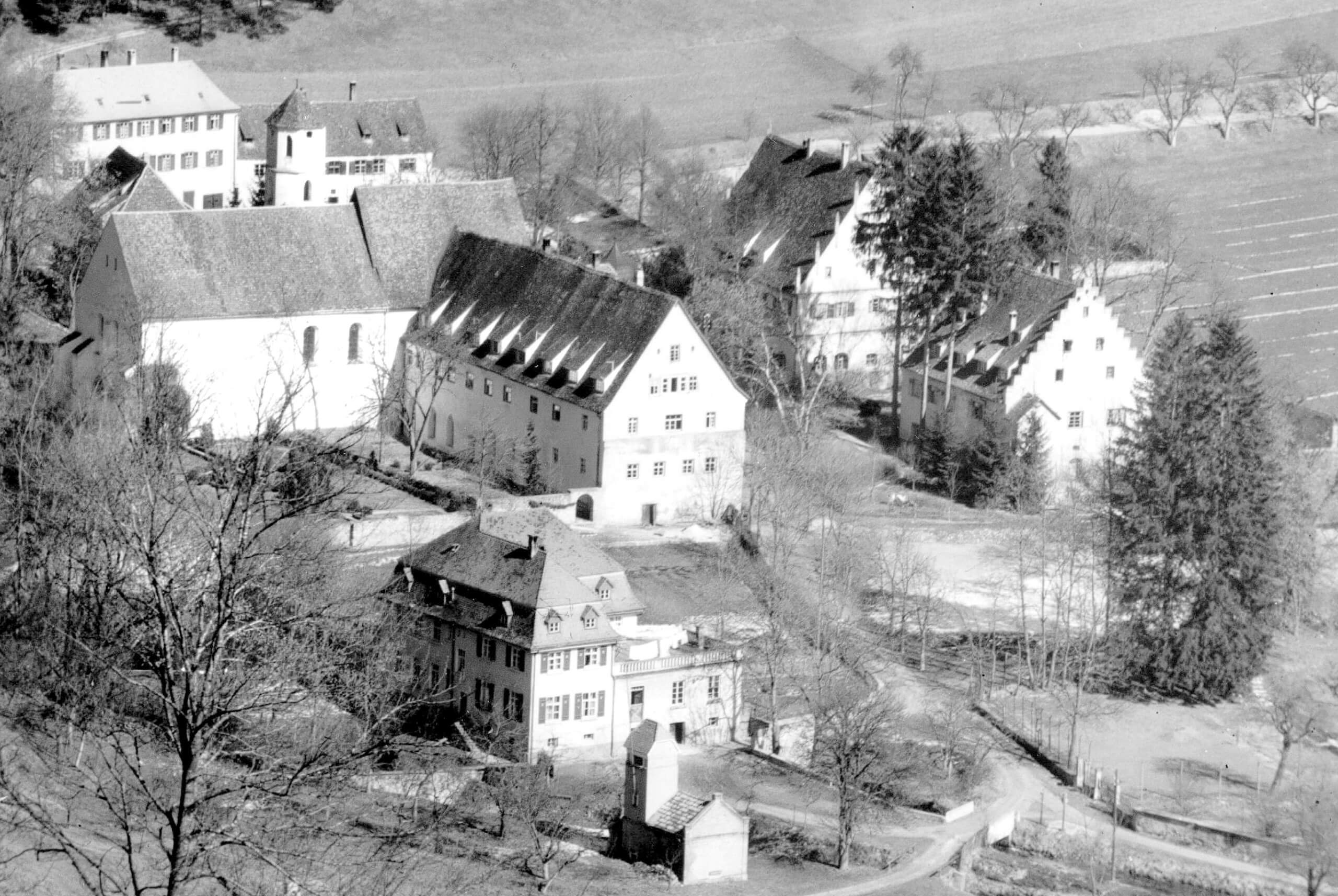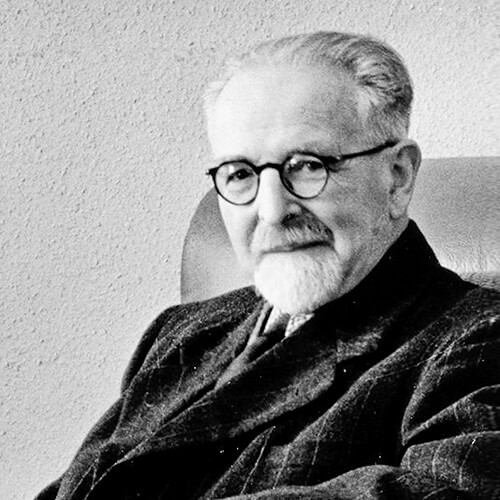
Dr. Bernhard Hell,
Founder Headmaster from 1930-1941
Founder Headmaster from 1930-1941
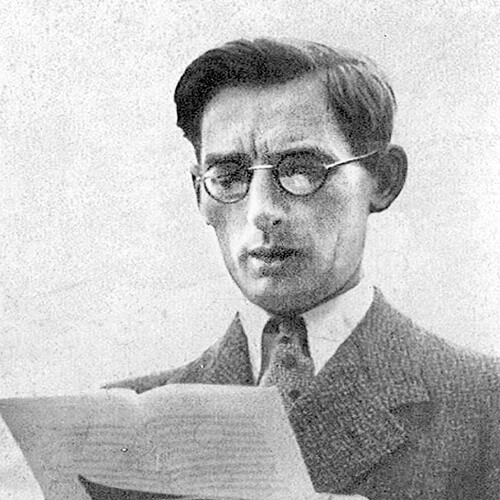
Fritz Ehrecke,
Founder Headmaster from 1941-1945
Founder Headmaster from 1941-1945
Stiftung Urspringschule (Urspring School Foundation) was founded in 1930 by Bernhard Hell, who wanted to establish a progressive school with a Protestant ethos on a charitable basis. He acquired the property, the site of the former Urspring Monastery and said to be a "magical place", using the inheritance he received from his father. Urspring has shaped generations of pupils ever since, giving them an outstanding foundation for life.
NINE DECADES OF BUILDING FUTURE
A chronology of Urspring.
1929
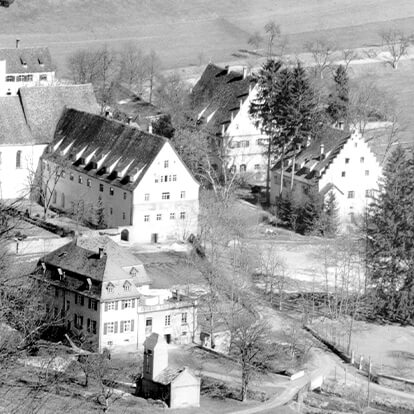
Dr. Bernhard Hell composes his essay, "Die evangelische Schulgemeinde" ("The Protestant School Community") at the rural education centre at Solling, in Holzminden. In the summer holidays, Bernhard and Else Hell visit properties which are up for sale. All "fall through", and only Urspring, the last property, seems suitable. Else Hell spends a week in autumn testing out the conditions and possibilities, and then takes the final decision. Fritz Ehrecke is recruited to work alongside them. (quoted from Urspring News 1979, Liesel Müller, page 41).
1930
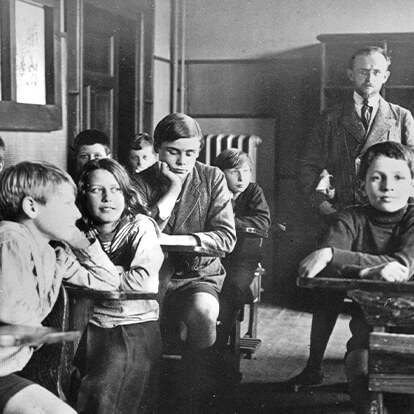
Dr. Bernhard Hell and Fritz Ehrecke set up Stiftung Urspringschule (Urspring School Foundation) on 2 April 1930. The school opens with four teachers and six pupils on 2 May 1930.
1931
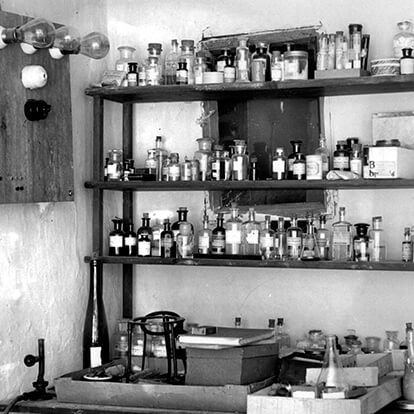
Despite major financial worries and constraints, a chemistry laboratory and a biology laboratory are set up in the gardener's house. With many donations and major commitment by all Urspring residents, the roof and windows on the ramshackle church are secured and restored. In autumn, pupil numbers have risen to 36 and for the first time fellowships (5) are established. The school community takes shape.
1933
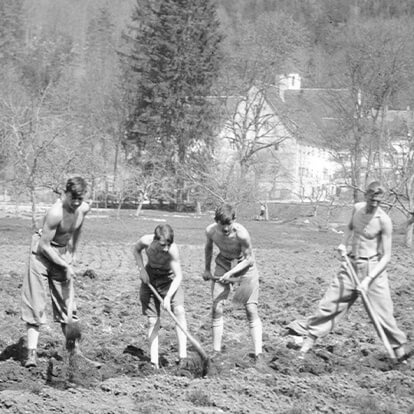
The new sports field with its cinder track is created from the open field.
1934
The first four Abitur students pass their Abitur examinations, taken in Ulm.
1937
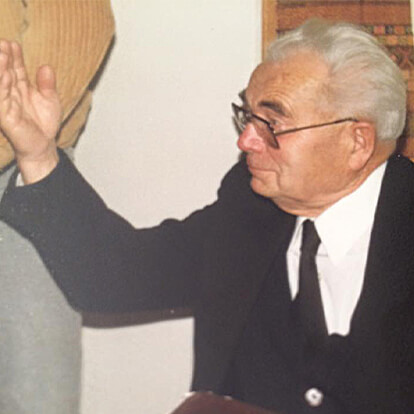
The Abitur examinations are conducted at Urspring for the first time. In Helmut Müller, known as Meunier, a teacher and educator comes to Urspring who is to make a deep and lasting impression on many generations of pupils at Urspring School in well over 40 active years as an art tutor, sports teacher and head of house.
1941
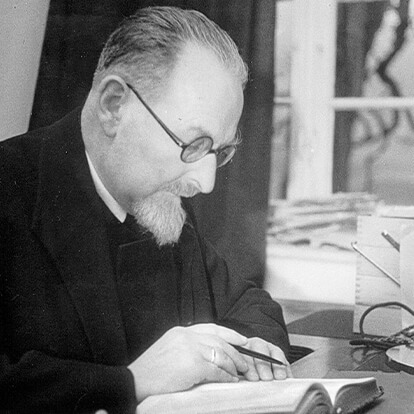
After increasing conflicts with the Nazi bureaucracy due to his Christian beliefs and his published texts, such as "Ehre und Not der christlichen Bildungsschule" ("Honour and Distress of the Christian Training School"), following which Urspring School is no longer permitted to conduct Abitur examinations, Bernhard Hell leaves in 1941 in order not to jeopardise the school's existence. (quoted from Urspring News 1981, Liesel Müller, page 38).
1944
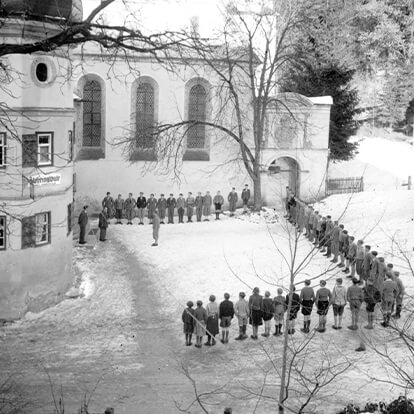
On 1 April, it is decreed by the Nazi state that Urspring School is to be nationalised, and the State of Württemberg is to undertake the sale of the land and buildings to the National Socialist government. However, due to the turmoil of the final year of the Second World War, the property remains unsold.
1945
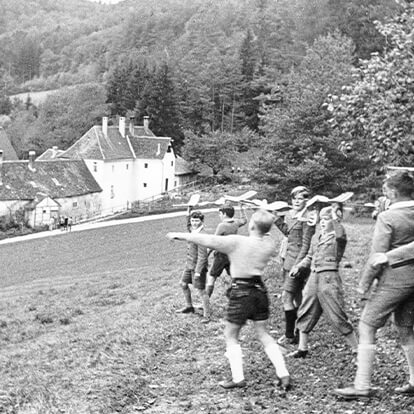
16 April is – for the time being – the school's final day. Urspring is confiscated by the Nazis. Six days later, American forces capture Urspring without encountering any resistance. France later becomes the occupying power in the region, and in August French troops set up a children's home for 200 children. On 1 August, the reinstatement of Urspring as a private school is again approved by the regional government of Württemberg, under the headship of the theologian Dr. Eberhard Dieterich.
1946
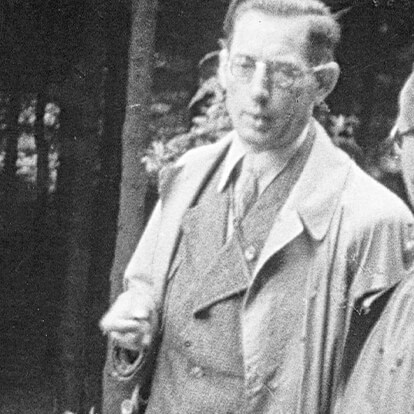
Following a serious illness to Fritz Ehrecke in the internment camp, his wife Anni receives news of her husband's release – but he dies on 18 June 1946.
A committee of three (Franzki, Baumann, Alfken) takes over temporary management of the school from the start of the school year after Dr. Dieterich gives up his headship just one year in. It is very much to his credit that Urspring was able to reopen in 1945, thanks to his skill in negotiating with the occupying powers and post-war politicians.
A committee of three (Franzki, Baumann, Alfken) takes over temporary management of the school from the start of the school year after Dr. Dieterich gives up his headship just one year in. It is very much to his credit that Urspring was able to reopen in 1945, thanks to his skill in negotiating with the occupying powers and post-war politicians.
1947
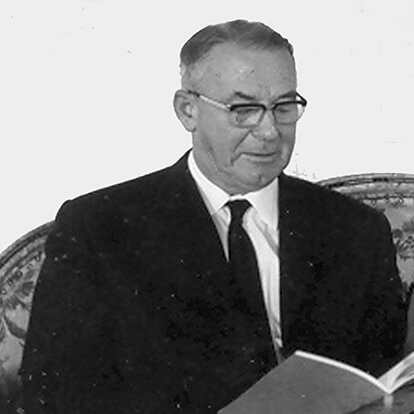
Pastor Erwin Palmer takes over the headship of Urspring School and is able to get the school back up and running, despite numerous technical and financial problems, with enthusiastic pupils and teachers. On instruction from the Health Department, he has to give up his post in 1949 due to an old lung complaint.
1949
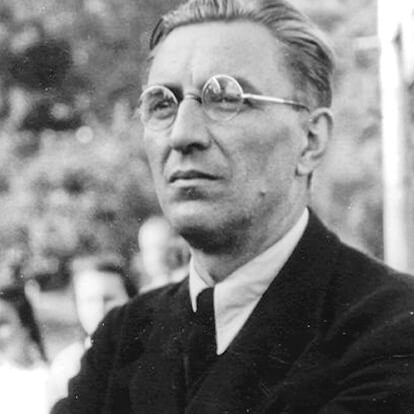
Pastor Helmut Schieck becomes the Director and Headmaster of Urspring School. He is head of the school for a quarter of a century and has a decisive impact on its development.
1953
Urspring School obtains state approval for a second time from Tübingen Supervisory School Authority. The 'Oberes Haus' (Upper House) is built on the top floor of the old skittle alley to accommodate female pupils.
The school also takes over the Mochental clergy residence at Zwiefalten Monastery. Until 1976 this new sister school accommodates the lower school pupils.
The school also takes over the Mochental clergy residence at Zwiefalten Monastery. Until 1976 this new sister school accommodates the lower school pupils.
1955
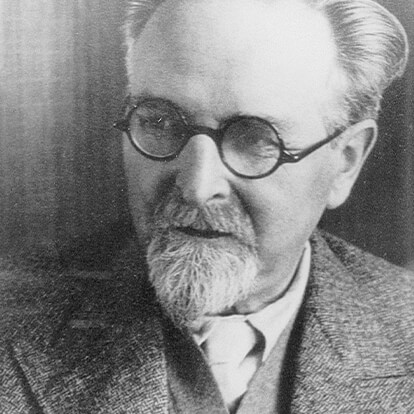
Dr. Bernhard Hell dies on 24 March 1955, and Urspring School commemorates his ideas of a Protestant school community, his work and the school's own early days.
1956
Urspring School now has 200 pupils.
1958
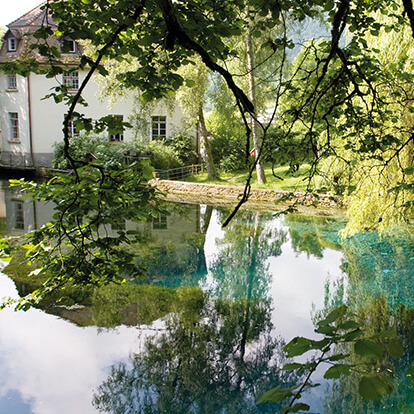
The cooperative-owned mill constructed in 1912 next to Urspring pond is handed over for the use of Urspring School.
1963
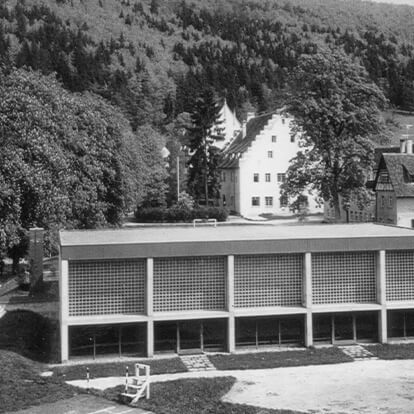
The new (now old!) gymnasium is built and provides a huge boost to sport at Urspring. 1964 is the year when basketball takes off as a popular sport at the school. The Forestry Commission also creates the woodland car park.
1967
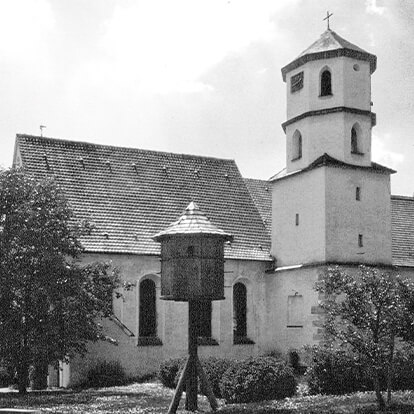
St Ulrich's Church in Urspring installs a new organ.
1970
Erection of the Pavilion building with four classrooms, marking the fortieth anniversary of the founding of the school.
1973
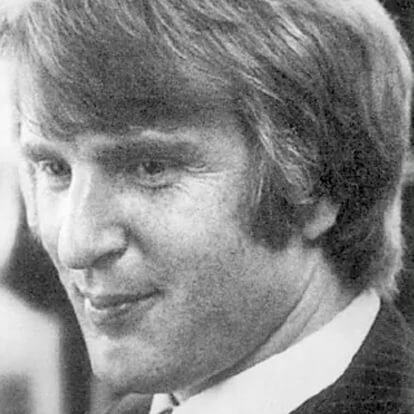
Pastor Ulrich Teuscher becomes Director and Headmaster at Urspring School, posts he holds for nearly 25 years. He succeeds Helmut Schieck, who is awarded the Cross of Merit of the Federal Republic of Germany in 1974.
In December 1973, Urspring School suffers a severe financial blow with the loss of a court case stretching over many years against the neighbouring Schnoop fish farm; due to the high level of compensation involved, it takes the Urspring School to the financial brink.
Urspring School receives approval from the Ministry of Cultural Affairs for a financial grant for the necessary redevelopment works to the school buildings. Given the background of the now greatly expanded needs of having to replace the school's teaching and function rooms in addition to the redevelopment, Director Teuscher rejects the grant as inadequate and submits an application for the construction of a New School.
In December 1973, Urspring School suffers a severe financial blow with the loss of a court case stretching over many years against the neighbouring Schnoop fish farm; due to the high level of compensation involved, it takes the Urspring School to the financial brink.
Urspring School receives approval from the Ministry of Cultural Affairs for a financial grant for the necessary redevelopment works to the school buildings. Given the background of the now greatly expanded needs of having to replace the school's teaching and function rooms in addition to the redevelopment, Director Teuscher rejects the grant as inadequate and submits an application for the construction of a New School.
1974
Following this fresh application, the Ministry of Cultural Affairs invites the School Building Commission to a meeting in Urspring in January 1974 to assess the need for comprehensive redevelopment and construction of a new school building on-site. At this meeting, the design of the new school building is successfully presented, and the space needed is agreed at the same time as a precondition for funding.
At the start of the year, in his capacity as headmaster, Ulrich Teuscher presents the working paper "Allgemeine Notizen zu einem Schulprogramm" ("General notes on a school programme") to the school community and the Foundation Board; it is the first time Urspring is described as a "residential school". The building requirements are discussed. The new plans take shape. Work commences on the principles and structures for living together in community. The daily and weekly arrangements are thought through, discussed, and tried out. The "Head of Fellowship" becomes the "Mentor". The Joint Conference draws up its statutes; the staff representative committee and parent representatives at whole-school and class levels become actively involved. (quoted from Liesel Müller in the Urspring News 1979).
As a consequence of the economic and pedagogic realignment of the Urspring School concept as a progressive residential school, the Urspring School statutes are redrafted and an opening balance sheet with a full reassessment of the Urspring properties is drawn up.
At the start of the year, in his capacity as headmaster, Ulrich Teuscher presents the working paper "Allgemeine Notizen zu einem Schulprogramm" ("General notes on a school programme") to the school community and the Foundation Board; it is the first time Urspring is described as a "residential school". The building requirements are discussed. The new plans take shape. Work commences on the principles and structures for living together in community. The daily and weekly arrangements are thought through, discussed, and tried out. The "Head of Fellowship" becomes the "Mentor". The Joint Conference draws up its statutes; the staff representative committee and parent representatives at whole-school and class levels become actively involved. (quoted from Liesel Müller in the Urspring News 1979).
As a consequence of the economic and pedagogic realignment of the Urspring School concept as a progressive residential school, the Urspring School statutes are redrafted and an opening balance sheet with a full reassessment of the Urspring properties is drawn up.
1975
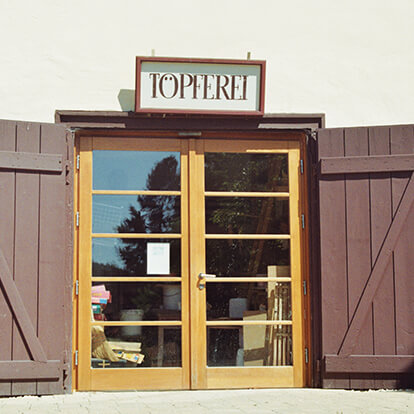
The tradition of workshop-based learning is continued at Urspring and the pottery workshop begins vocational training in the former flower house (between 'Gärtnerhaus' (Gardener's House) and 'Oberes Haus' (Upper House)). As a consequence of the economic burden imposed by the lost court case against the fish farm, the Foundation Board decides to give up the sister school at Mochental and to transfer the lower school to Urspring for the start of the 1976 school year.
1976
Classes 6 and 7 move from Mochental to Urspring, where Class 5 is admitted. Sigrid Teuscher takes on the widely-diversified tasks of administration, both internally and externally, for instance in relation to youth welfare offices.
1977
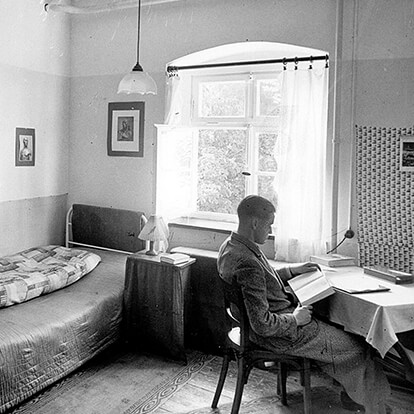
At the start of the 1977/78 school year, the new concept of Urspring - developed since 1974 - as a residential school uniting living and learning is implemented, via integrated teaching and the ten-day timetable. This resulted from criticism of schooling where teaching and homework learning are not integrated, but separated. In the ten-day timetable, integrated teaching can be scheduled with the necessary variable time and spatial conditions.
1978
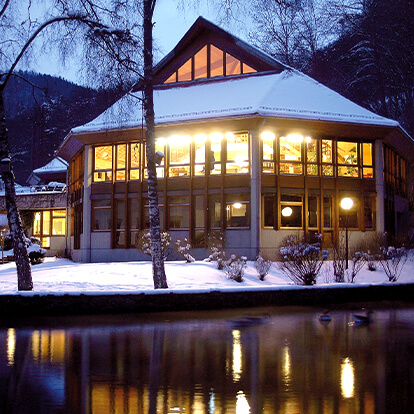
With the generous support of the Land, the Robert Bosch Foundation and the Social Welfare Charity of the Protestant Churches, the New School is built. The design for the building, prepared by the architects' office of Kilpper and Partners, integrates well into the old monastery grounds and offers space for many specialised classrooms, a new library and a large carpentry workshop. In 1978, the tailor's workshop is developed under the leadership of master tailor Herta Waier.
1980
As one of the late consequences of the lost court case against the Schnoop fish farm, Urspring School is connected to the urban sewage system for Schelklingen, with a pumping station on the sports field.
1981
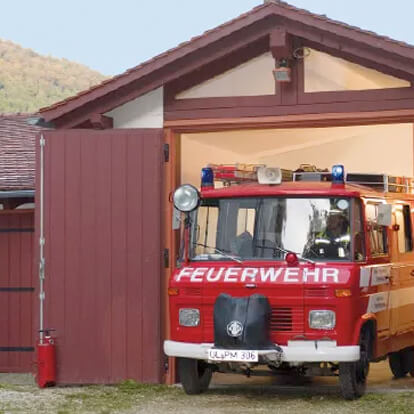
The Dreikönigsmühle (mill of the three kings) is acquired on a long-term lease and becomes part of Urspring. Following a fire in the area of the residential home, the Urspring Fire Brigade is established in 1981, with support from Schelklingen volunteer fire brigade.
1984
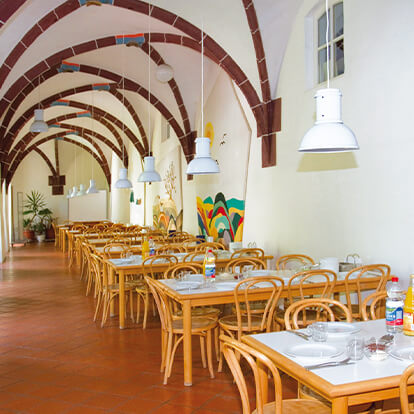
A new refectory and a new kitchen wing are built in the style of the old cloister.
1986
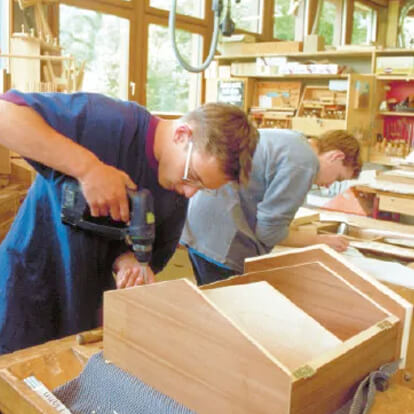
The training of carpentry apprentices begins under the leadership of master carpenter Günther Mayer.
1989
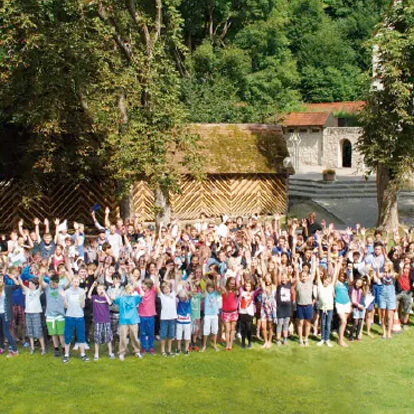
Following many years of successful collaboration with youth welfare offices, Urspring is recognised across the country as a youth support facility.
1995
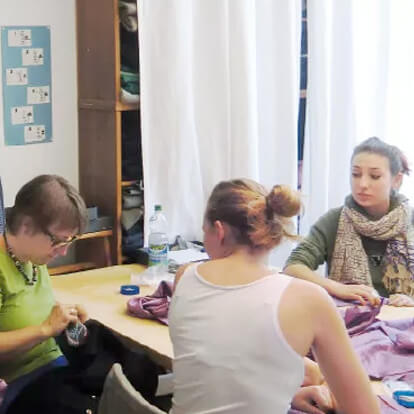
A dress-making training course is approved by the German Chamber of Crafts.
1997
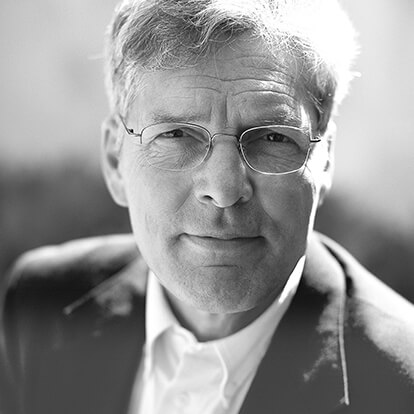
Pastor Michael Deckwerth takes over the post of Director and Headteacher of Urspring School.
1998
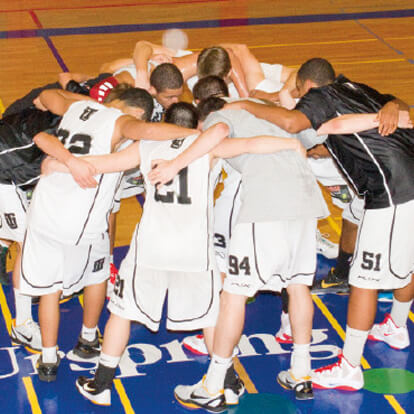
Ralph Junge and Michael Deckwerth set up a Basketball Academy at Urspring. This takes up an old tradition of success in playing basketball at Urspring from the 1960s and the early 1980s, and it is successfully re-established both organisationally and in terms of sporting achievements. This year also sees the introduction of a course in precision engineering, specialising in mechanical engineering, as a third apprenticeship option.
Ulrich Teuscher is awarded the Cross of Merit of the Federal Republic of Germany.
Ulrich Teuscher is awarded the Cross of Merit of the Federal Republic of Germany.
2004
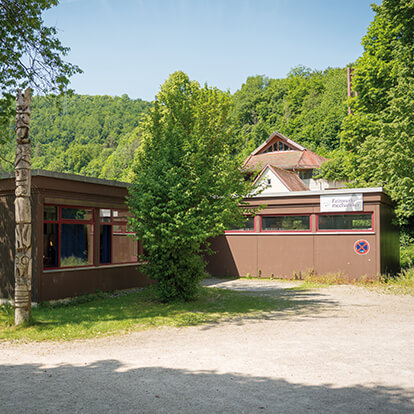
A new work yard is built, Upper House is demolished and a replacement constructed, a new sports hall is built and the old gymnasium is converted to create an All-Day Centre, while general refurbishment is carried out and the metalwork and plastics workshops are installed in the Pavilion.
2005
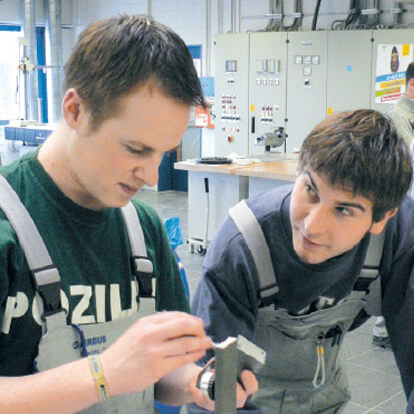
A primary school is opened at Urspring for junior-level pupils with teaching based on the philosophy and methods of Maria Montessori. A fourth apprenticeship – process engineering in the plastics and rubber industry – is introduced in collaboration with Airbus Laupheim.
2007
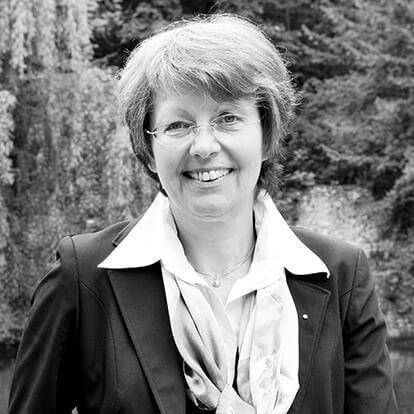
Mrs. Sund Headmistress at Urspring School.
2010
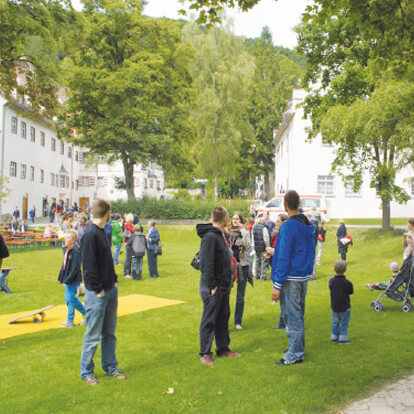
Urspring School celebrates its 80th anniversary in the summer.
2015
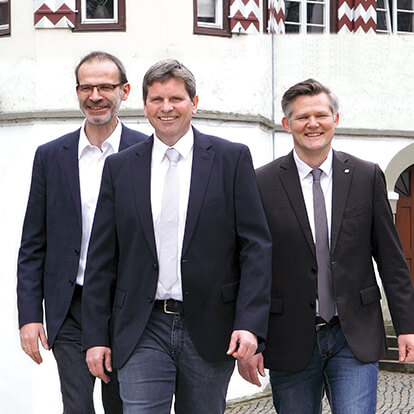
Dr. Rainer Wetzler takes over the leadership of Urspring School together with Daniel Leichtner and Hans-Martin Meth.
